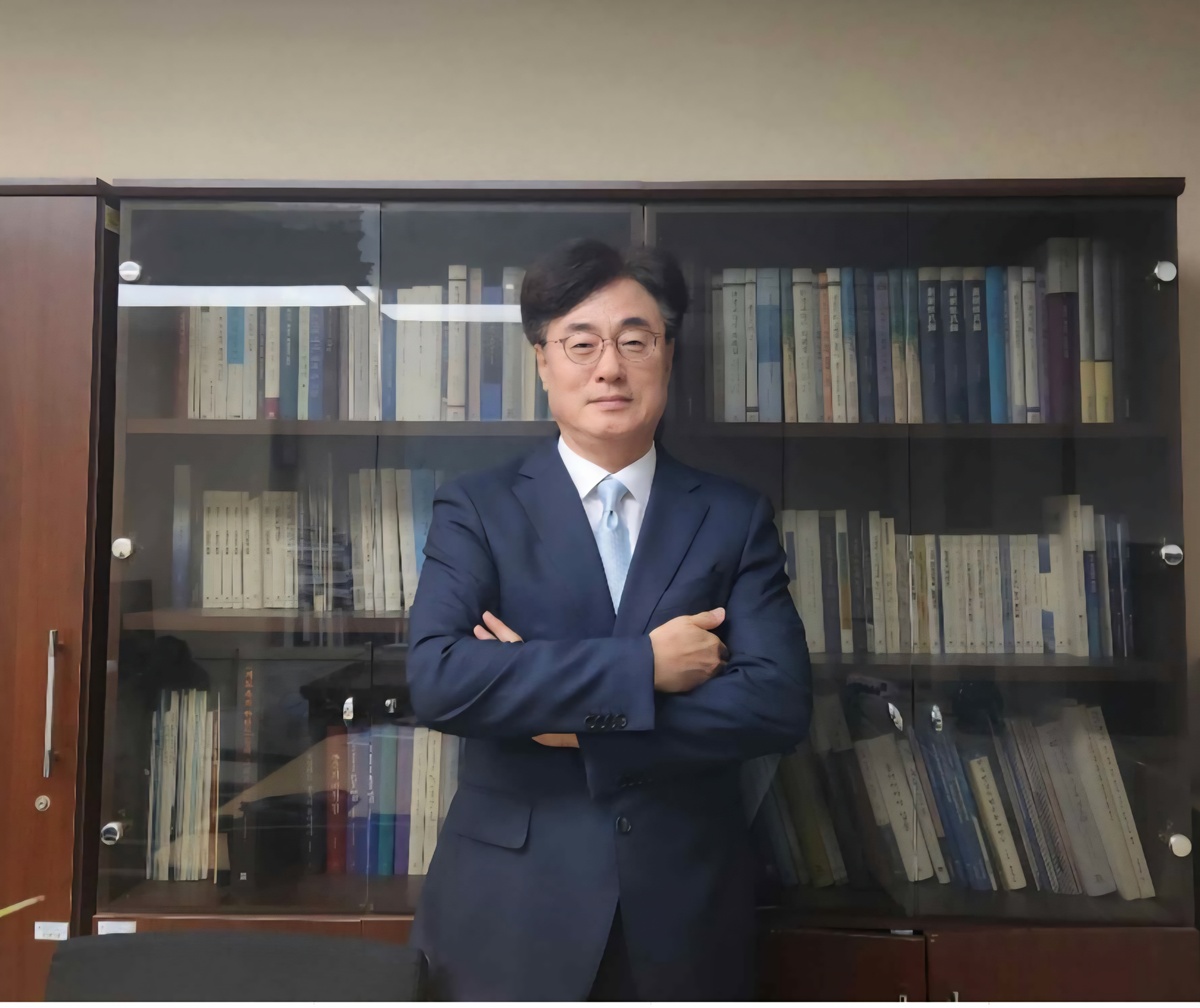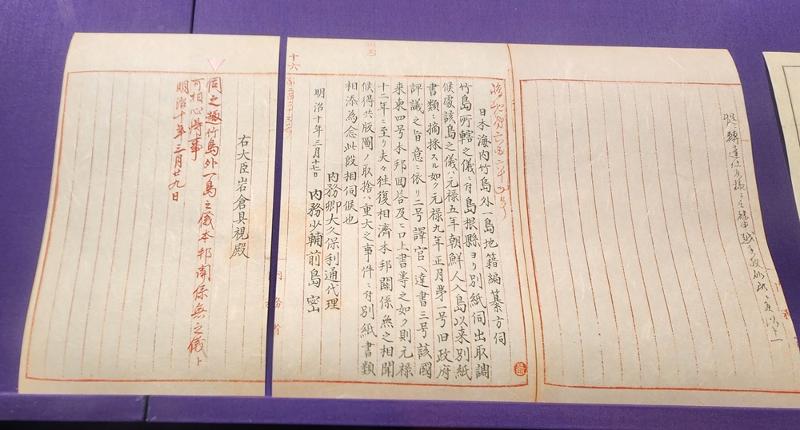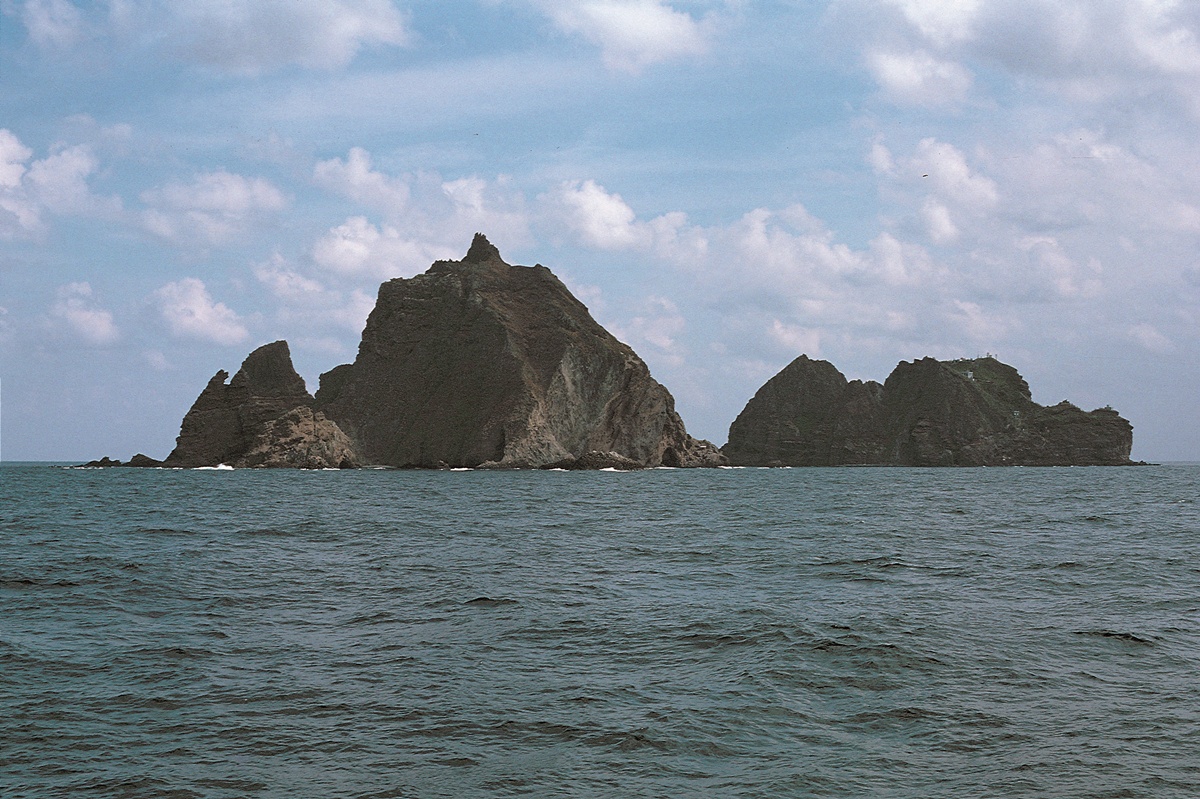Information Center
- Main page
- Information Center
- Government News
Government News
- Source
- korea.net
- Date
- 2025.10.22

Doh See-Hwan, director general of the Northeast Asian History Foundation's Office of Dokdo Research and Public Relations, on Sept. 24 gives an interview with Korea.net. (Lee Jihae)
By Lee Jihae
Oct. 25 is Dokdo Day, when Emperor Gojong in 1900 issued Imperial Decree No. 41 declaring the islands of Dokdo and Ulleungdo part of the Korean Empire.
This annual commemorative day seeks to raise awareness of the country's sovereignty over Dokdo and reaffirm the nation's intent to protect it, especially from Japan's territorial claim to the island.
Ahead of the occasion, Korea.net on Sept. 24 interviewed Doh See-Hwan, director general of the Northeast Asian History Foundation's Office of Dokdo Research and Public Relations in Seoul. The following are excerpts from the interview.
Korea has de facto control over Dokdo but Japan claims the island and calls it "Takeshima." How should the world see this issue?
Dokdo has inherently been Korean territory since 512, when Gen. Yisabu conquered Usanguk (a region comprising Ulleungdo and Dokdo) during the Silla Kingdom (57 B.C.-A.D. 935). The Korea Coast Guard is stationed on Dokdo and the latter's administration is under the jurisdiction of Ulleung-gun County, Gyeongsangbuk-do Province.
In 1905, Japan incorporated Dokdo into Shimane Prefecture's Oki Islands by asserting terra nullius (territory which belongs to no state), claiming that it acquired the island legally under international law. After criticism arose that Japan violated its obligation to notify under international law by occupying Dokdo, which was already part of the Korean Empire, Japan changed gears in 1962 by saying Dokdo had been Japanese territory since the 17th century.
But if that was true, Japan had no need to occupy Dokdo in 1905 under terra nullius. And if Dokdo that year was occupied as terra nullius, it contradicts Japan's claim that the island had been Japanese territory since the 17th century.
Three historical occurrences -- the An Yong-bok incident of 1693, Tottori-han's Submission of 1695 and the Dajokan Order of 1877 -- are often cited in this issue. How do your consider Korean and Japanese interpretations of them?
The An Yong-bok incident occurred in the late 17th century, when the eponymous fisherman protested against illegal Japanese fishing in Korean waters and sought to defend national sovereignty over Ulleungdo and Dokdo. Afterward, Japan's Edo Shogunate, the country's highest authority, asked its feudal domain Tottori-han about the island's territorial rights, and Tottori-han's response was that neither island was part of the domain.
In 1877, Dajokan, Japan's highest administrative body at the time, officially confirmed that Ulleungdo and Dokdo were not part of Japanese territory. However, Japan insists that although the document states that Dokdo is not part of Japan, it does not recognize it as Korean territory either.

Japan's Dajokan Order is on display at Dokdo Museum Seoul in Seoul's Yeongdeungpo-gu District. (Lee Jihae)
Japan says it annexed Dokdo to Shimane Prefecture in 1905 during the Russo-Japanese War under a "terra nullius occupation," but Korea says the island was its national territory. How does international law view this?
In 1905, Japan claimed Dokdo citing terra nullius and incorporated it into Shimane Prefecture via the latter's ordinance, notifying the Korea Empire the following year. Yet the ordinance was based only on domestic law, and international precedents generally do not grant legal effect to local government actions. Furthermore, Japan violated the notification requirement under international law by failing to give prior notification to the Korean Empire and gave belated notice only after it stripped Korea of its diplomatic rights through the illegal Eulsa Treaty.
Korea and Japan have different interpretations of the 1951 San Francisco Peace Treaty, which does not mention Dokdo's territorial status. Whose stance has more validity?
Article 2 of the San Francisco Peace Treaty says "Japan recognizing the independence of Korea, renounces all right, title and claim to Korea including the islands of Quelpart (Jeju), Port Hamilton (Geomundo) and Dagelet (Ulleungdo)." The treaty doesn't mention Dokdo but Japan uses this as the basis for its claim that Dokdo was "remaining Japanese territory." Korea responded by saying the island was already its territory and did not require explicit mention in the treaty.
In fact, the first five drafts of the treaty designated Dokdo as Korean territory. Japan later had William Sebald, the U.S. Department of State's political adviser in Japan, to lobby for the island's inclusion as Japanese land in the sixth draft. But the final draft omitted Dokdo altogether, thus Japan's lobbying failed.

Dokdo Island comprises the two main islets of Dongdo (East Island) and Seodo (West Island) and 89 small rocks. (iClickArt) (Unauthorized reproduction and redistribution of this image is prohibited under copyright law.)
Is Japan's use of a 1951 letter by then Assistant U.S. Secretary of State Dean Rusk to claim sovereignty over Dokdo legitimate?
The 1951 letter from Dean Rusk cited by Japan was an unofficial diplomatic note from the U.S. to Korea that said Dokdo was Japanese territory based on false information provided by Japan. But it didn't represent an official decision based on an international treaty or law, it was just the opinion of an assistant secretary of state reflecting American interests. It was never released in Japan and is merely a political document with no binding effect under international law.
Japan wants to refer the Dokdo issue to the International Court of Justice, to which Korea has not responded. How do the stances of both countries differ?
Japan claims that the Dokdo issue should be referred to the International Court of Justice (ICJ) for peaceful resolution. However, Korea firmly exercises its sovereignty over Dokdo, which is clearly Korean territory based on history, geography, and international law. Therefore, no sovereignty dispute over Dokdo exists, and Dokdo cannot be subject to diplomatic negotiation or judicial resolution. Japan's unilateral claim to make Dokdo a disputed territory does not establish the jurisdiction of the ICJ.
What role can civic groups play on this issue?
Public interest and love for Dokdo, a symbol of Korea's territorial sovereignty, are essential. To this end, we must study the historical and international legal foundations to clearly understand and explain the basis for Dokdo's status as Korean territory. Through exchanges at the global and civic group levels, we can spread international support, boost mutual understanding between Koreans and Japanese, and promote civic cooperation.
jihlee08@korea.kr